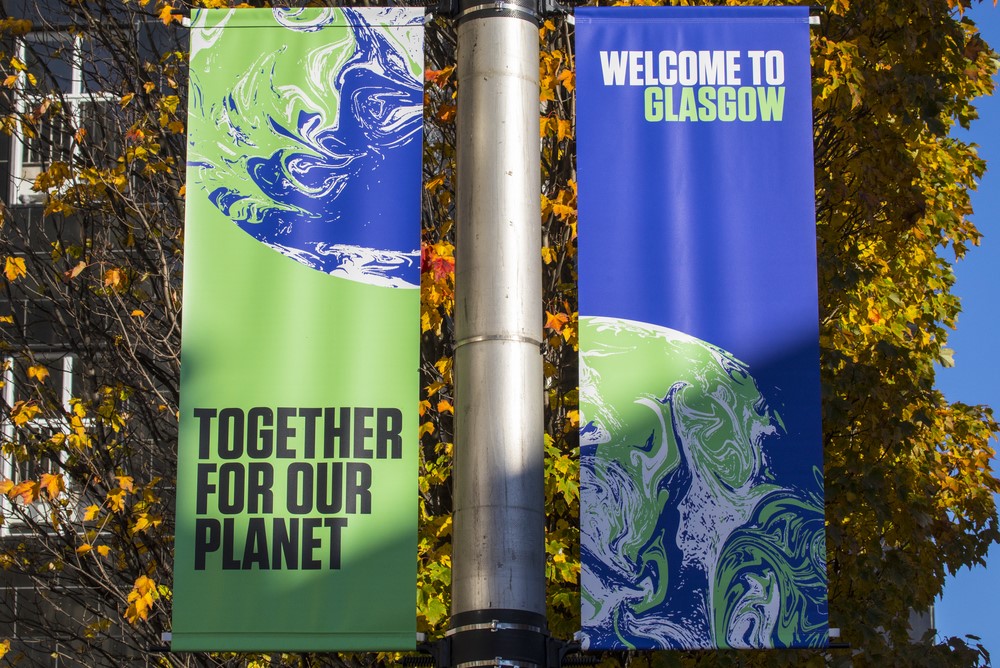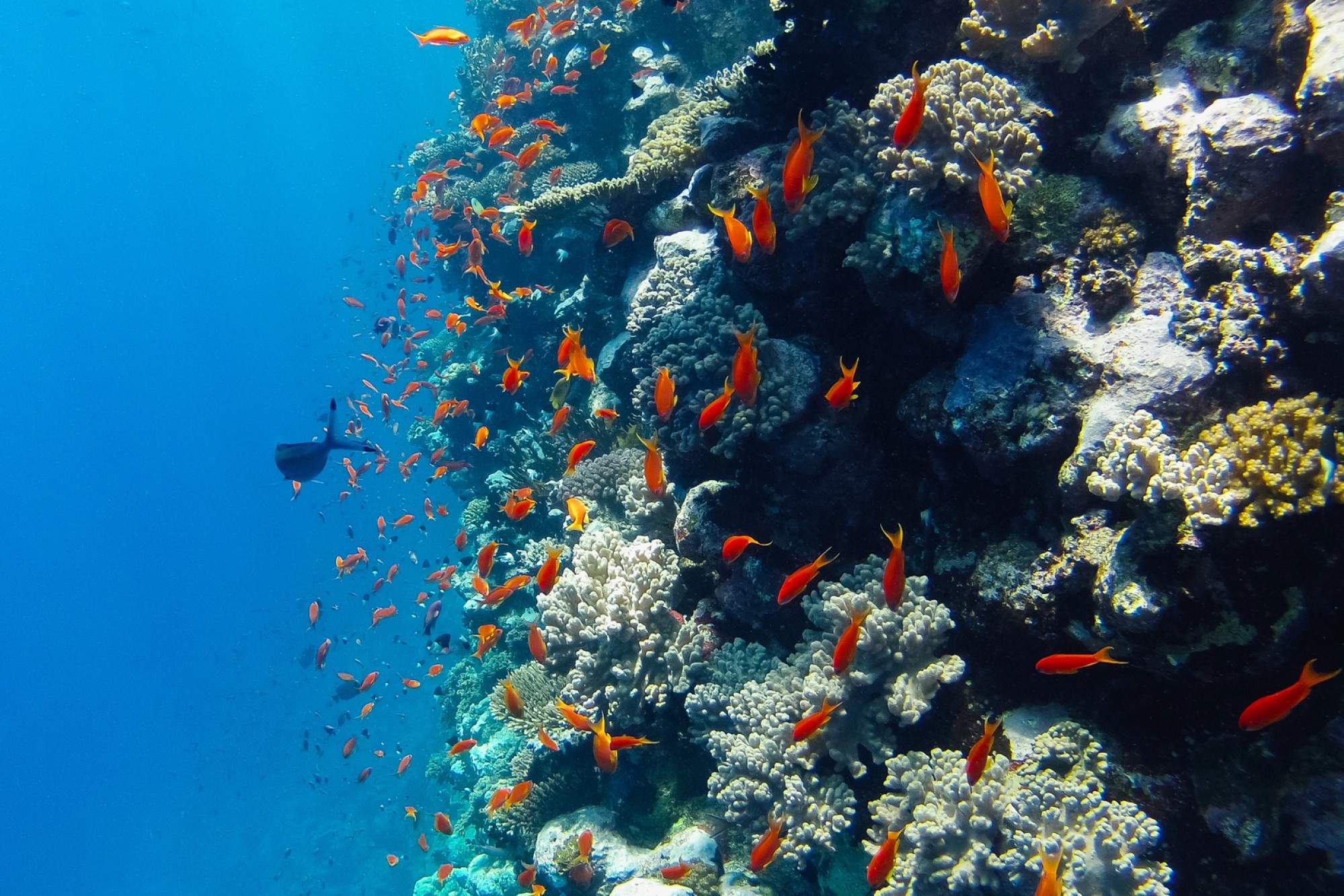The Politics of Earth’s Climate

This past weekend marked the end of COP26, an annual event started in 1995 to bring countries together to discuss climate change. All eyes fell on the leaders of the world’s highest-carbon emitting countries. With each passing year, the future looks more and more dire as the planet continues warming.
Shortly before the commencement of the COP26, a summit was held in Rome involving many of those same world leaders. The topic of climate change was merely brushed over. A photo of the leaders tossing a coin into the Trevi Fountain quickly went viral on social media. The smiling faces and picturesque background made it seem as if these leaders were mere tourists partaking in a common ritual, rather than meeting to discuss the future of life on Earth. With such little progress made and such little attention paid to climate change at the summit, the photo suggests a carefree attitude: devastating climate disasters happen in other, far less wealthy countries.
The COP26 conference, in Glasgow, however, offered hope that global warming would be treated like the crisis it is, with serious and extensive discussions resulting in real and measurable action. Along with one of the warmest years in history, within the warmest decade in history, 2020 brought the most expensive year of weather disasters ever, carrying a $50 billion price tag. With all the money spent on disasters like earthquakes, wildfires, and flooding, you’d think world leaders would make addressing the climate crisis a priority.
The conference brought some encouraging news: COP26 represented the biggest climate meeting in history. Almost 200 world leaders managed to agree upon the Glasgow Climate Pact, which is meant to keep the Earth’s climate warming below the 1.5 degrees Celsius through multiple strategies like decreasing carbon emissions. This commitment to this new, lower threshold is encouraging. The previous Paris Accord from 2015 had settled on a 2-degree target. However, this would mean the complete sinking of coastal countries and cities, encompassing millions of people. Currently, the world is on track to reach a warming of 2.7 degrees Celsius within this century, which almost ensures catastrophic climate disasters for every country on the globe. In order to reach the 1.5 goal, the world needs to cut greenhouse gas emissions in half by 2030.
Leaders at COP26 discussed decreasing some of the most polluting activities in the world, such as fossil fuel production, deforestation, and methane emissions in order to work towards the 2030 goal. The world may have just witnessed an amount of global cooperation and delegation that hasn’t been seen in decades, and certainly never with the context of climate change. This does not mean, however, that world leaders were truly able to set aside politics, even in the face of a worldwide threat indifferent to human conditions.
One of the biggest weaknesses of these arrangements is that they depend solely on the word of dozens of world leaders. The agreements lack any sort of enforcement mechanisms to ensure that countries will actually put into action the pledges they agree to on paper. Given the grave stakes and the necessity of cooperation in achieving our goals, having no sort of penalty for defection or inaction may spell disaster. The countries who signed on to the 2015 Paris Agreement are not even close to hitting those targets. The global coordination that is needed to actually take meaningful action on climate change has never been witnessed before (with consequences that are life-changing for every person on Earth), yet world leaders have refused to hold each other accountable.
This lack of enforcement sheds light on one of the biggest disparities that exists in climate change: the countries who contribute the most pollution and the countries who have felt the worst of climate change so far. Just 12% of the global population (living in wealthy countries) are responsible for 50% of the global greenhouse gas emissions from the beginning of the industrial revolution. This fact has long been discussed, and in 2009 wealthy countries even pledged to help shoulder the costs of the climate disasters in countries that struggle financially with the impacts. Unsurprisingly, this funding had no sort of enforcement, so in the Glasgow Agreement it was noted
with deep regret that the goal of developed country Parties to mobilize jointly USD 100 billion per year by 2020 in the context of meaningful mitigation actions and transparency on implementation has not yet been met.”
This time around, the pact encourages wealthy countries to voluntarily help fund lesser developed countries with the high costs of climate change that they have barely contributed to in comparison to countries like the U.S., England, China, and Russia. While the COP26 certainly resulted in world leaders making strict goals towards climate change in a way that we have never seen them commit to before, there seems to be plenty of both historical and scientific evidence to believe these goals to be made in blind optimism.
Another glaring issue at the COP26 was who was actually in attendance, or at least who was able to get there. For decades, oil company executives have had plenty of seats at the table of climate change discussions, knowing that it is their business that was going to take a hit if the world ever transitions away from fossil fuels. This conference was no different with over 500 people in attendance all from countries with major oil and gas companies or lobbying organizations in support of the fossil fuel industry. This allows the very industries that have helped bring the climate to catastrophic warming, all the while denying the impact of climate change for decades, to have a significant say in the future of a world without the need for their business. At the same time, young activists whose homelands are directly threatened by climate change struggled to afford the costs of attending the conference. These activists bring first-hand knowledge of the impacts of climate change to their lands. Unfortunately, they’ve found that their experience and perspective is not welcomed at a conference specifically committed to helping these very lands and people.
Yet another issue of access was revealed when the energy minister for Israel, Karine Elharrar, was unable to attend the conference as she could not find a transportation that was wheel-chair friendly. Another disability and climate activist, Jason Boberg, could not get in because the accessibility entrance was closed and pointed out the exclusion was bigger than the conference: “We know that disabled people are left behind in climate disasters, floods and fires, and now we are left out of the conference that is supposedly meant to address that.” The field of attendees illustrates that there are ethical issues not just in what decisions are being made at the conference, but who is able to influence, discuss, and witness these decisions. The conference was meant to be full of diverse conversations across the topic of climate change, but even these conversations were limited.
Ultimately, COP26 was illustrative of just how complicated the issue of climate change really is. In a world that is more globally connected than ever before, climate disasters will affect not just one country, but spread beyond national borders. Additionally, just as greenhouse gas emissions are not being released equally, they are not impacting countries equally. There are very serious ethical concerns in how countries that have the capability and finances to assume responsibility for their own pollution are refusing to do so. Despite the various pledges they make, nations continue to allow captains of industry, actively working against progress on climate change, to sit at the head of the table. Politicians may have been able to agree upon extensive plans for climate mitigation under the watchful eye of activists and millions of onlookers, but only time will tell whether these new pronouncements will be anything more than empty promises.




